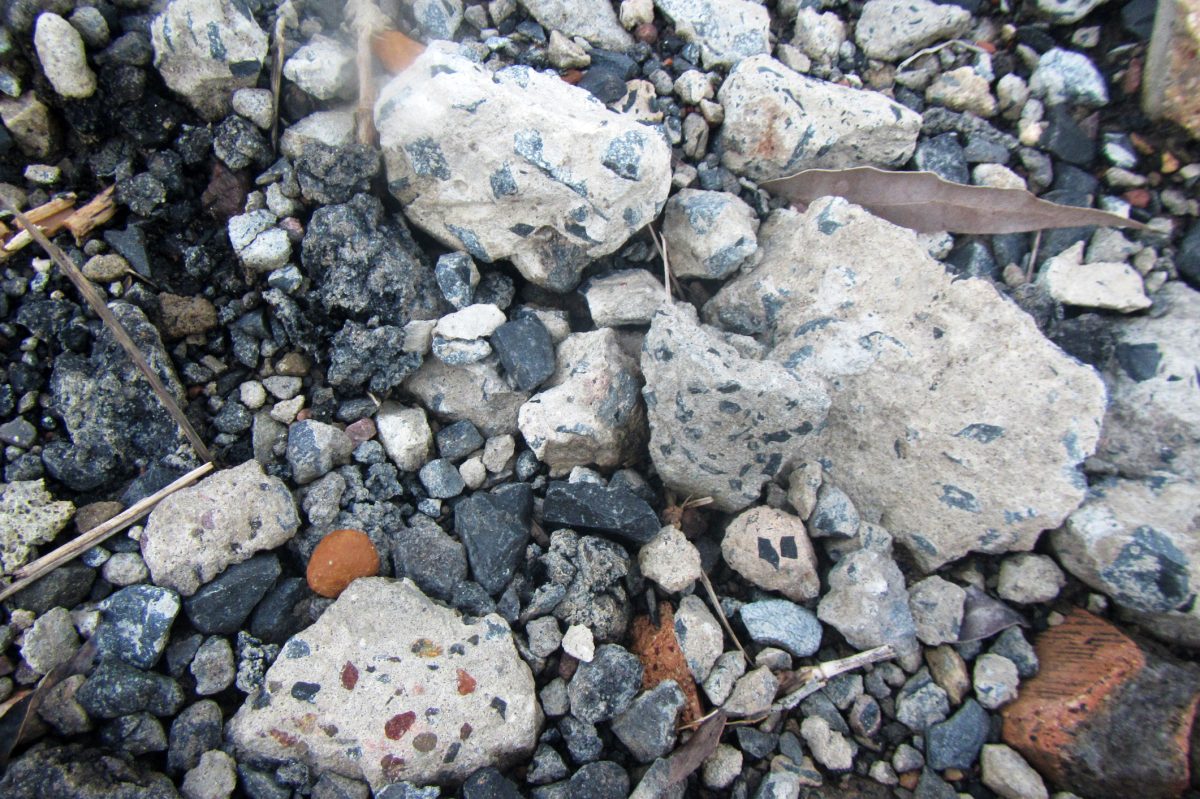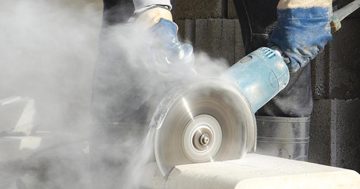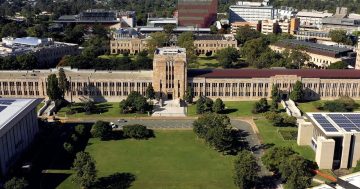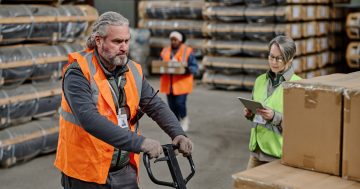
SafeWork Australia’s report last month found that engineered stone workers are dramatically over-represented among workers diagnosed with silicosis. Photo: Jane Webb.
Following the release of SafeWork Australia’s (SWA) report on engineered stone last month, national vendors like Bunnings and IKEA have taken the product off their shelves with mounting pressure on others to follow.
Last week, South Australia said it would support a national ban on the material at an upcoming meeting of Commonwealth Work Health and Safety Ministers, but the commitment hasn’t been matched by all states and territories.
The ACT, Queensland, Tasmania, Victoria and South Australia have already confirmed their plans to implement a local ban on the product if a national one isn’t supported.
In March, a preliminary meeting of Work Health and Safety ministers was held to consider future action and consultation on banning engineered stone to eliminate the threat of silicosis for construction workers, with another discussion in December to follow it up.
When engineered stone is processed, such as by cutting or grinding, it releases tiny particles of respirable crystalline silica dust that, when inhaled into the lungs, can cause silicosis – a disease resulting in permanent disability and death, and with no known cure except a lung transplant.
The SWA report found no scientific evidence for a “safe” threshold of crystalline silica content in engineered stone. It recommended a prohibition on the use of all engineered stone and a licensing scheme for work with engineered stone already installed.
In September, the SA government banned the uncontrolled dry cutting of engineered stone and mandated dust suppression systems and the use of personal protective equipment. SA Attorney-General Kyam Maher said engineered stone workers suffer most from the rapidly growing problem of silicosis, and Australia can not afford to make the same mistakes it made with asbestos.
Following the announcement of IKEA and Bunnings removing the material from their shelves by the end of the year, Queensland Industrial Relations Minister Grace Grace said they have led the way in forging a national consensus for action and first put the issue on the agenda in 2018. The state has already implemented the nation’s first code of practice for the engineered stone industry and silica in the construction industry, along with the first established Dust Lung Disease register.
In the Northern Territory, PCBUs (Person Conducting a Business or Undertaking) have monitored workplace sites since 2020 to ensure exposure standards for respirable crystalline silica do not exceed 0.05 mg/m3 over eight hours. But in New South Wales, the government has only just introduced a silica worker register to track and trace exposed workers, making early intervention and better healthcare research possible.
The Minns Labor government has received criticism for not implementing bolder reforms but has said the register is only the first part of a response that will increase silicosis screening, worker education and industry compliance as the Commonwealth process nears completion.
Western Australia has already banned dry-cutting stone but expressed no explicit support for the ban. However, WA Industrial Relations Minister Bill Johnston said the state government would accept any national arrangements made to regulate ‘high-risk’ silica products.
Victoria is one of the most legislated states, having introduced a permanent ban on dry-cutting engineered stone and regulating all crystalline silica work. Their 2019 Silica Action Plan also brought free health screenings for their past and present stonemasons, along with changes earlier this year that compensate eligible workers suffering from silicosis access and additional benefits for those who develop a further related disease or injury.
Early diagnosis has been supported there by the nation’s first dedicated public occupational respiratory clinic, and all businesses working with engineered stone have to be licensed. The state government also supports the Commonwealth’s proposal to ban the importation of engineered stone, work with unions and businesses to eliminate silicosis and silica-related diseases, and increase the quality of life of those already impacted.





